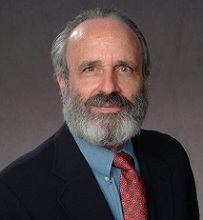 William A. Hyman
William A. Hyman
Professor Emeritus, Biomedical Engineering
Texas A&M University, w-hyman@tamu.edu
Read other articles by this author
A recent press release and report from AHRQ asserts that 87,000 lives and nearly $20 billion in costs have been saved as a result of safety improvements. This reduction in hospital-acquired conditions (HAC) is said to be “thanks in part to provisions of the Affordable Care Act”, and Medicare incentives. While the press release does not mention EHRs the report does provide scant mention, noting “widespread implementation and improved use of Electronic Health Records at hospitals”. How exactly EHRs have had such an effect, if they have, is not detailed but there is a footnote to a single as yet unpublished study that found that “adverse events were less frequent at hospitals that have implemented a full EHR”. What is missing here of course is any data that shows it was the adoption of EHRs that resulted in the reduction of adverse events. In turn there is no reference to how the adoption of EHRs might have led to the reduction. Alternatively it could be that hospitals that are otherwise doing better on the adverse event front have also adopted EHRs because they have generally been more conscientious. The footnote further states that “one may hypothesize that part of the HAC reduction seen from 2010 to 2013 and 2014 could have been partially due to increased EHR adoption and increases and improvements in EHR use.” The leap from a hypothesis to a statement of fact is a big one, but it follows the standard practice of identifying a problem, imposing a solution, and then declaring that the solution has solved or at least ameliorated the problem when there is no actual proof that one has caused the other.
While EHRs were at least mentioned I found it interesting that Patient Safety Organizations (PSOs) were not. PSOs are an AHRQ program that is voluntary if you don’t count that hospitals over 50 beds who don’t have PSOs will be penalized with respect to health plan contracting, and some states have made PSO participation mandatory. Like EHRs, PSOs have had grand claims for their value and little proof that value has been achieved. Did the AHRQ just overlook PSOs in this report, or were they unwilling to make any associated claims of success?
One might wonder if AHRQ’s self aggrandizement in this press release and report are in any way related to earlier action in the House to defund it entirely and in the Senate to cut its budget by 35%.
